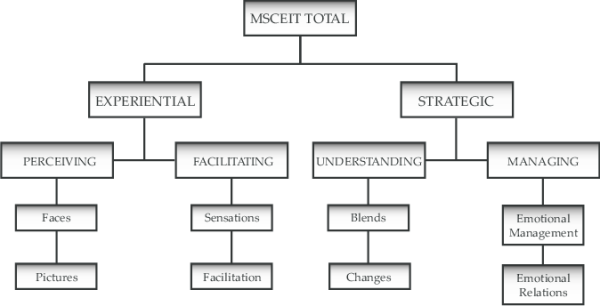The average person will experience more than 400 emotions every day. Emotions are a stimuli of our feelings. Without emotions, we would be unsuccessful as a human species; we would not be able to bond, understand, or make decisions.
The question is, where do our emotions come from?
And how do different people process these feelings differently?
Where do emotions come from?
Emotions originate from an area of our brain called the Limbic System. This is the part of the brain that controls your behavior and your emotions, as well as behaviors needed for survival, such as our fight or flight response. Without it, we would not have any survival instincts and we would not know how to regulate our emotions. The limbic system has four main parts, each with its own distinct purpose. These are the hypothalamus, amygdala, thalamus, and hippocampus.
You can think of your hypothalamus as an area of the brain in charge of balancing and maintaining homeostasis. This includes maintaining your heart rate, body temperature, and hunger. Along with the balance of bodily functions, it plays a huge role in emotion. The hypothalamus’s job is to regulate the emotions that rise and convert them to physical responses and hormones.
The amygdala is responsible for controlling emotions. It stores memorable events and partakes in the decision-making process and regulating of behaviors. Because of this, it has a built-in system that activates the fight or flight response. It stores memories of events so it can retrieve them later and recognize similar events in the future.
The thalamus processes the information that comes from the five senses, apart from smell. It also keeps you wide awake and very alert, helping you think through and process events. It processes and regulates these emotions, and stores memories.
And finally, the hippocampus also deals with memory, however more specifically, it translates short-term memory into long term-memory. For example, if you’re trying to rehearse for a play and remember lines, the hippocampus is able to create a record and form short term memory into long term memory.
Emotions are complicated and many factors play into the exhibition of these emotions. It is not simply dependent on what is happening around you in a given moment, but also how you were raised, how you were taught to handle your emotions, and your social settings/roles in life. Given this, how do emotions present themselves differently in men versus women?
Women are prone to be more open about their emotions. They demonstrate how they are feeling through body language, hand gestures, and facial expressions to further authenticate their emotions. Many women feel more comfortable talking about a situation that is bothering them with close friends, who help to reassure them. Women have better emotional recognition. Tests such as the MSCEIT test prove this to be true. The MSCEIT is similar to an IQ test, however it focuses solely on the recognition of emotions, and the level of skill you have to understand and process your emotions. Graphs of the data collected by this test show that the estimated marginal mean for the girls’ scores can be as much as 13 points higher than boys at the age of 13. Even girls of younger ages receive a significantly higher score than boys of the same age. A chart of the range of MSCEIT scores shows that boys tend to score around average, while girls have a higher emotional intelligence and score above the high average, landing in an area of ‘competent’ emotional intelligence.

However, the truth is not that simple. In fact, the answer to this question has been argued for years, yet it is still not clear. While some argue that women have a higher emotional intelligence, others say that men and women have equal emotional intelligence. The difference may be more clear during adolescence, when differences in hormones, timing, and development can play a role in maturity.
Women peak in certain aspects of emotional intelligence, while men peak in others. Women score higher on tests such as the MSCEIT as the test has a focus on perceiving and understanding emotions. Women tend to have better empathy and sense of responsibility, whereas men are more assertive and confident.
Why is that?
The origin of these differences can be traced back to childhood. Men were raised to be competitive and tough skinned, and protect others when help is needed. Girls on the other hand are raised with more of a focus on how they treat others; with care, kindness, and empathy. This is why women tend to outperform men in emotional expression and understanding. Having emotional expression does not mean women have more emotions than men.
Men also respond to emotional or difficult situations, however they tend to process and understand the events a little differently. While women may be more emotionally responsive than men, men still feel and process these emotions, however, they are usually not as expressive. Both men and women share a wide range of emotions, such as anger, sadness, or happiness.
Many studies show that the reason behind the lack of emotional expressivity in men is because they feel that under society’s standards, they are not ‘allowed’ to feel and express these emotions, as it is unmanly and shows signs of weakness. They feel that they have to be self-reliant and help others rather than focusing on themselves. A history of unhealthy relationships/traumas have led men to lack emotional processing, and in many cases, have led them to form an avoidant attachment style. They feel that if they express their emotions they may be judged or deemed weak. This restriction in emotional expression often leads men to a feeling of isolation, as they have less support from their peers and their community. A study on gender and emotional expression even found that this isolation can lead to a greater percentage of alcohol abuse in men. Women differ in this aspect, as they are more likely to seek support in times of need, and express these emotions or sadness more freely. Due to this among other factors, women are two times more likely to be diagnosed with depression than men.
Those with low emotional intelligence are often emotionally unavailable. While this is more common in men, all genders can be affected. Emotional unavailability is often a defense mechanism that causes people to close off from others due to trauma from childhood or fear of vulnerability. This leads to a fear of commitment of getting too close to someone, or it is hard to recognize. For example, emotionally unavailable people can fall in love, however they may have a hard time recognizing these feelings. Emotional unavailability stems from neglect or abuse at a young age. An emotionally mature person is able to handle and understand their emotions, as well as the emotions of other people. On the other hand, those with emotional unavailability will struggle to understand and accept their own emotions.
The effect of emotional unavailability can be seen clearly in friendships and relationships. When two individuals are close, they are bound to have an argument at some point. Oftentimes, an emotionally unavailable person will completely close off during these times and become very uneasy. In other cases, when if their partner is struggling, the emotionally unavailable person will have trouble understanding how to react to the situation. However, this is not entirely their fault. They simply do not have the tools to be able to understand or ‘unlock’ their emotions, and they bury them deep inside. This again, could be due to the childhood they had. They have learned that when they are faced with difficult situations, it is best to run away from them. So, they have learned to bury their emotions as a defense mechanism.
Emotions affect our everyday life, both in good ways and bad. They influence our decisions, our friendships, and how we act, both to others and to ourselves. While women are more expressive, men tend to feel those same emotions; however, they keep their feelings private to avoid judgment. Being able to recognize and understand why people react to certain situations the way they do, and relay their emotions in a certain way can help you better empathize and even form better emotional intelligence.
Emotions affect our everyday life, both in good ways and bad. They influence our decisions, our friendships, and how we act, both to others and to ourselves.

